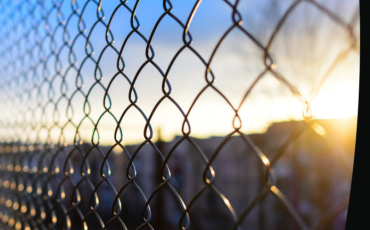Inspections of Australia's immigration detention facilities 2019 Report

Human Rights Commissioner’s foreword
For several decades, the Australian Human Rights Commission has expressed deep and longstanding concern about the human rights of people held in Australia’s immigration detention facilities. As a result of our most recent inspection process, that concern has deepened.
Some of the issues of greatest concern to the Commission are as follows.
- A number of hotels, which have been temporarily repurposed as ‘alternative places of detention’ (APODs), provide very limited access to communal or outdoor facilities. While APODs are generally to be used only for short periods, many people are currently detained in these facilities for long periods, with significant negative consequences for their health and wellbeing.
- Many asylum seekers and refugees, who have serious medical conditions, have been transferred from Papua New Guinea and Nauru to Australia for assessment and treatment. While some of these people have been permitted to receive their care in the community, a large number remain in closed detention facilities where the Commission holds strong concern about their physical and mental health.
- The Commission also expresses alarm about the mental health of the broader detention population, with concerning rates of self-harm. Current treatment practices appear inadequate to deal with this problem.
- Almost all people in immigration detention rely on having a mobile phone to stay connected to family, friends, legal representatives and other professionals. While the Commission accepts that it may be legitimate to remove the mobile phone from a particular individual if it is shown that their use of a mobile phone would present an unacceptable security risk, we are concerned about plans to make it easier to remove access to mobile phones in situations beyond this one.
Moreover, as the Commission and other experts have observed many times in the past, almost every human rights problem in closed immigration detention is made worse the longer an individual is detained. Throughout 2019, the average period that an individual was held in immigration detention was close to or just above 500 days. As I write this foreword in 2020, the average period of detention has increased further. By the middle of this year, it was 553 days. Most recently, in September 2020, it had reached 581 days—the highest ever recorded.
This is orders of magnitude greater than any comparable jurisdiction. That people are detained for so long in Australia’s immigration detention system is not the necessary consequence of irregular migration, which affects many parts of the world. People are detained for long periods in Australia’s immigration detention network because of Australia’s current legal and policy framework.
Many developed countries face similar challenges to Australia in controlling their borders and, more specifically, in determining which non-citizens are permitted to enter and remain in the country. Some of these challenges have been made more difficult by events since the conclusion of the Commission’s inspections—especially the COVID-19 pandemic.
Since the inspections in this report were undertaken in 2019, the Government has re-opened the immigration detention facility on Christmas Island and increased its use of APODs, including in Darwin. While other jurisdictions have acted decisively to remove from closed detention people deemed to pose a low risk to the community, Australia’s immigration detention population has increased over the course of 2020. By November 2020, over 1,500 people remained in immigration detention.
The Government should act urgently to reduce the total number of people in immigration detention. Over a significant period of time, the Commission has identified many individuals for whom closed detention was not justified.
The urgency of this issue is increased as a result of the present pandemic and the ease with which infection spreads in places of closed detention. Noting the expert advice of the Australasian Society for Infectious Diseases, the Australasian College for Infection Prevention and Control and others, the Commission urges the Government to remove from immigration detention anyone who is not considered to pose a significant threat to the Australian community.
On 30 November 2020, the Commission received the Department of Home Affairs’ formal response to this report’s 44 recommendations. That response is published alongside this report.
The Department agrees, in whole or in part, with nine of the Commission’s recommendations in this report. In relation to some, it is unclear what steps the Department plans to take in order to implement them in whole or in part. The Department has stated that it accepts nine further recommendations ‘in principle’, but on those issues the Department disagrees with the Commission regarding the need for changes in law, policy or practice. The Commission is pleased that there are some areas of agreement with the Department on recommendations in this report. However, we urge the Government to give further consideration to all of the report’s recommendations.
As a liberal democracy, Australia takes its human rights obligations seriously. This means we should confront a difficult truth: we can and we must do better to protect the human rights of people subject to immigration detention.
This could start by building on some positive change. For example, since the Commission’s inspection process concluded, the number of children in immigration detention has reduced.
While the Commission remains concerned that a small number of children remain detained, most notably two very young children on Christmas Island, it is commendable that the Government has significantly reduced the total number of children in detention over the last few years. The Commission considers that the small number of children who remain in immigration detention should be housed, with their parents or guardians, in the community.
Finally, this report makes a number of practical recommendations to improve the mental and physical health, as well as the broader wellbeing, of people whom the Government determines must remain in detention. These recommendations would enable genuine risks in immigration detention to be managed safely, while also protecting the human rights of all people held in immigration detention.
Edward Santow
Human Rights Commissioner
3 December 2020
Department of Home Affairs response
(412.9 KB)



